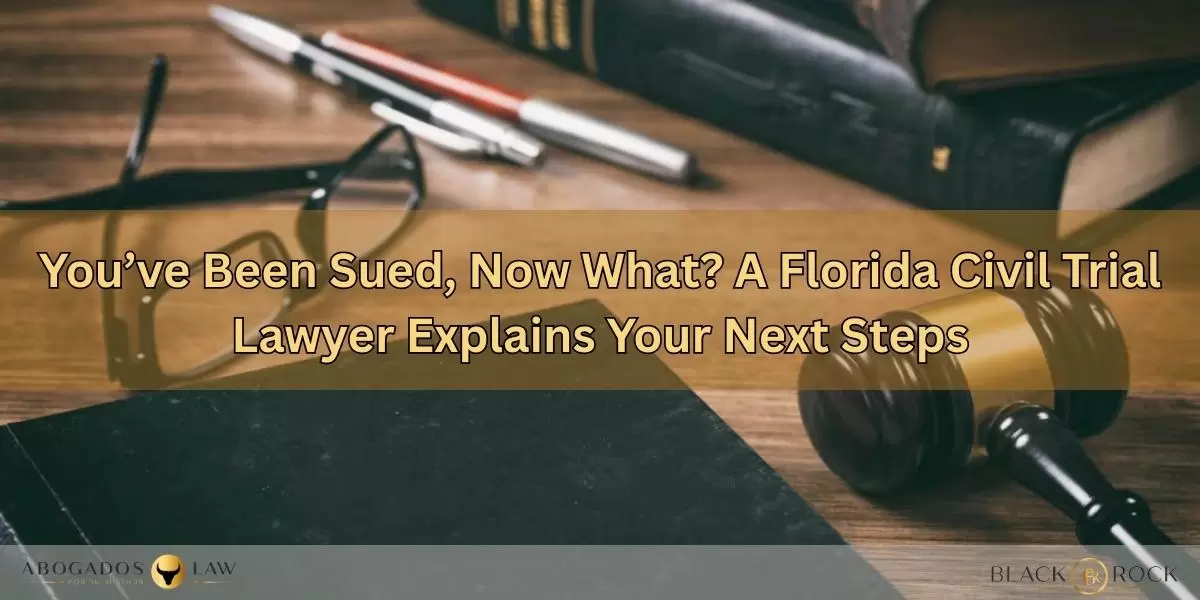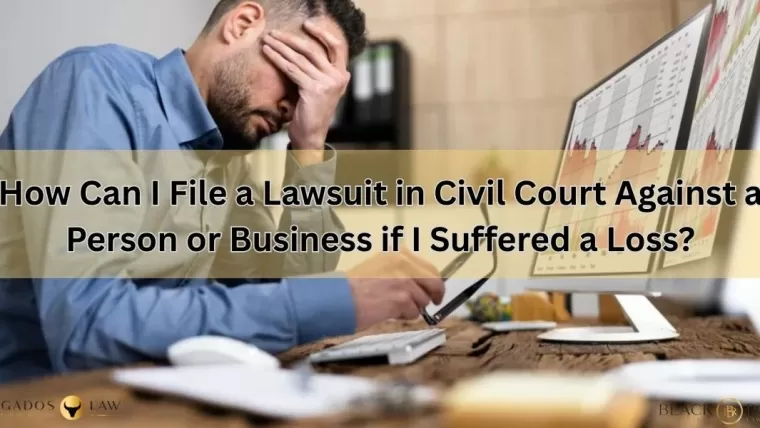You’ve Been Sued, Now What?
You’re at home or at work and someone hands you a stack of legal papers. Your name is on it—and you’ve just been served with a lawsuit.
If your heart’s racing and your mind’s spinning, you’re not alone. Being sued can feel overwhelming. But here’s the good news: You have rights, and you have options. The most important thing you can do right now is take action—not delay.
As experienced civil trial lawyers in Florida, we’re here to explain what happens next and how to protect yourself.
Step 1: Don’t Ignore It
Florida law gives you 20 days from the date you were served to file a formal response with the court. If you ignore the lawsuit, the other party can get a default judgment against you—meaning they win automatically, and you lose the right to defend yourself.
Bottom line: Do not delay. Call a civil litigation attorney immediately after being served.
Step 2: Understand the Lawsuit
The papers you received include a Complaint and a Summons:
- The Complaint explains what the plaintiff (the person suing you) is claiming you did wrong.
- The Summons tells you how long you have to respond.
An experienced Florida civil trial lawyer will review these documents with you and explain:
- What you’re being accused of
- What defenses may apply
- What evidence may be needed
Step 3: Hire a Civil Litigation Attorney
Defending a lawsuit is not a DIY job. An experienced civil litigation attorney can:
- File your Answer or a Motion to Dismiss
- Investigate the facts of the case
- Represent you during discovery, negotiations, and in court
- Prevent procedural mistakes that could cost you the case
Whether it’s a personal injury claim, contract dispute, or business lawsuit, you need a legal advocate who knows Florida’s civil court system inside and out.
Step 4: Participate in Discovery
After initial court filings, both sides exchange information during discovery. This may include:
- Interrogatories (written questions)
- Requests for Production (documents and records)
- Depositions (sworn testimony under oath)
Your civil trial lawyer will help you gather evidence and respond strategically.
Step 5: Consider Mediation or Settlement
Most Florida courts require mediation before trial. Mediation is a confidential negotiation session with a neutral third party. Many lawsuits are resolved here without ever going to trial.
A good litigation attorney will prepare you for mediation and negotiate a fair outcome if possible.
Step 6: Prepare for Trial (If Necessary)
If the case doesn’t settle, it goes to trial—either in front of a jury or a judge (bench trial). Your trial lawyer will present your defense, cross-examine witnesses, and argue your side of the story in court.
Some civil cases resolve quickly. Others can take 1 to 3 years depending on complexity and court scheduling.
Don’t Panic. Call a Florida Civil Trial Lawyer Now.
If you’ve been sued, don’t go it alone. The civil court system is complex, and the consequences of mishandling your case can be serious—financially and legally.
At [Your Law Firm Name], we defend individuals and businesses across Florida in personal injury lawsuits, business disputes, contract claims, and more. We bring experience, precision, and aggressive representation to every case.
Contact us today to schedule a consultation with a Florida civil litigation attorney who will fight for your rights and guide you every step of the way.
civil trial lawyer
civil litigation attorney
served with a lawsuit
mediation
contact us today
personal injury claim
business lawsuit



